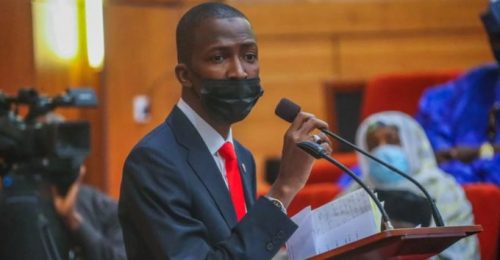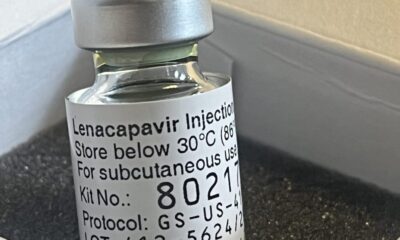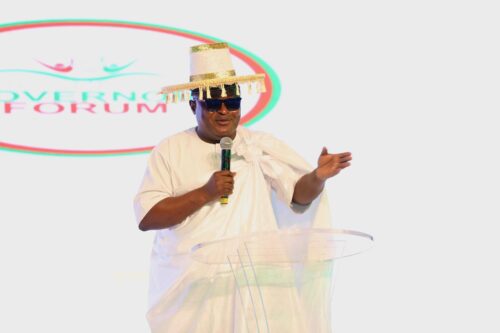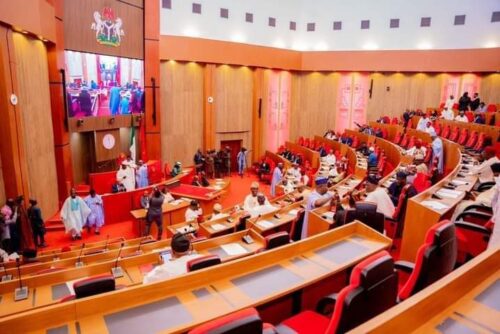Some of the ships seized by the Economic and Financial Crimes Commission have begun to sink in waters across the country, while many of those temporarily and permanently forfeited by suspected corrupt persons are being damaged due to lack of maintenance.
According to Punch, sources in the know of the development at the House of Representatives said that the Nigerian Navy, which was mandated to oversee the seized, recovered or forfeited assets, had no budgetary provision to maintain them, leaving them damaged and submerged eventually.
According to the lawmakers, most of the vessels are in Lagos State and they are the worst hit by the abandonment.
The House of Representatives Ad Hoc Committee on Assessment and Status of All Recovered Loots Movable and Immovable Assets from 2002 to 2020 by Agencies of the Federal Government of Nigeria for Effective, Efficient Management and Utilisation had recently embarked on oversight visits to the locations of such assets for an on-the-sight assessment.
Some members of the committee, who spoke to our correspondent on the condition of anonymity as the investigation was still ongoing, expressed their displeasure at what they found out during the tour.
A member said, “There are some of these assets that are still being managed by third parties. But a lot of them are just totally sealed up. Like business premises, they allow the people operating on the premises to continue, while they pay (rent) into the Recovery Account…they are paying rent to the EFCC. But for the ones that are not like that, they are sealed up and those ones are depreciating.
“Now, let me tell you the worst-case and where you will feel bad about depreciation (of recovered/seized assets): houses depreciate but not as bad as the vessels in the waters. Most of the ships that were supposedly seized, a number of them sunk – three or four of them have submerged because nobody can take care of them.
“In fact, most of the ones in the Lagos waters have badly depreciated…they are like just holding the shell when the snail is dead. That is what has happened to most of the vessels. About 10 percent have been submerged, while the other ones are just in a terrible state that they cannot attract much value again.”
When asked for the number of ships and vessels on the waters across the country, the lawmaker disclosed that over 30 were in Port Harcourt, about 10 in Warri, and about 10 in Bayelsa, adding, “They (Navy) have quite a lot and they are really in a bad shape.”
The source noted that while the “ones with the most value are in Port Harcourt,” they are all in the custody of the Nigerian Navy.
“Even though they were forfeited to the EFCC, the EFCC cannot protect them; it is the Navy that is protecting them,” he said.
The lawmaker noted that ships that were supposed to be powered regularly had been abandoned for close to seven years “and because of that, they have started to take in water.”
“I initially doubted the submerging story. We went to the water. I actually did not believe that they were submerged. But we actually saw ships inside the water,” the lawmaker added.
Another member of the committee was asked how the panel felt about recovered assets wasting away when the Federal Government was crying about revenue shortage and had embarked on a borrowing spree locally and internationally.
The lawmaker said, “The problem is that there is a wide gap between forfeiture and sale (auction). Most of the ships and vessels were forfeited over five years ago; the minimum is two years ago. And they are all still there. And these are assets that cannot be abandoned for long; they are depreciating assets.
“The waters in Nigeria have a lot of corrosion due to the high salt content (salinity). So, they are corroded from the base and as long as they get corroded, they will end up damaged.”
Responding to a question on plea bargaining being an alternative, the lawmaker said the government and its anti-graft agencies should have made the offer before approaching the courts to secure orders of interim and permanent forfeiture of the vessels.
The lawmaker added, “Part of the problem is that keeping custody of and maintaining them is gulping a lot of funds from the Navy and nobody is refunding the money being spent by the Navy. So, if we have like 100 vessels and six naval ratings working on each ship, it means that every day, the naval men will be patrolling the waters, so you have about 600 of them tied down to these assets
“Also, they are to be provided fuel and fed at that location. Yet, the EFCC does not refund the Navy for the expenditure on the assets. So, because of that, it is becoming a burden on the Navy and the level of maintenance is dropping gradually.
“And because the Navy was part of the process of seizing the assets, seeing what is now becoming of them, the Navy is not encouraged to carry out more seizures. When you seize something and you find out that it eventually becomes a burden on you, you may compromise and allow some (of the vessels) to go.”
The Chairman of the committee, Adejoro Adeogun, however, declined to comment on the revelations. When contacted to confirm the findings, he said, “You don’t expect me to speak on a probe that we have not concluded. All the details you need will be provided in our report to the House.”
The spokesman for the Attorney-General of the Federation, Umar Gwandu, could not be reached for comments on Sunday ditto for the spokesman for the EFCC, Wilson Uwujaren.
























